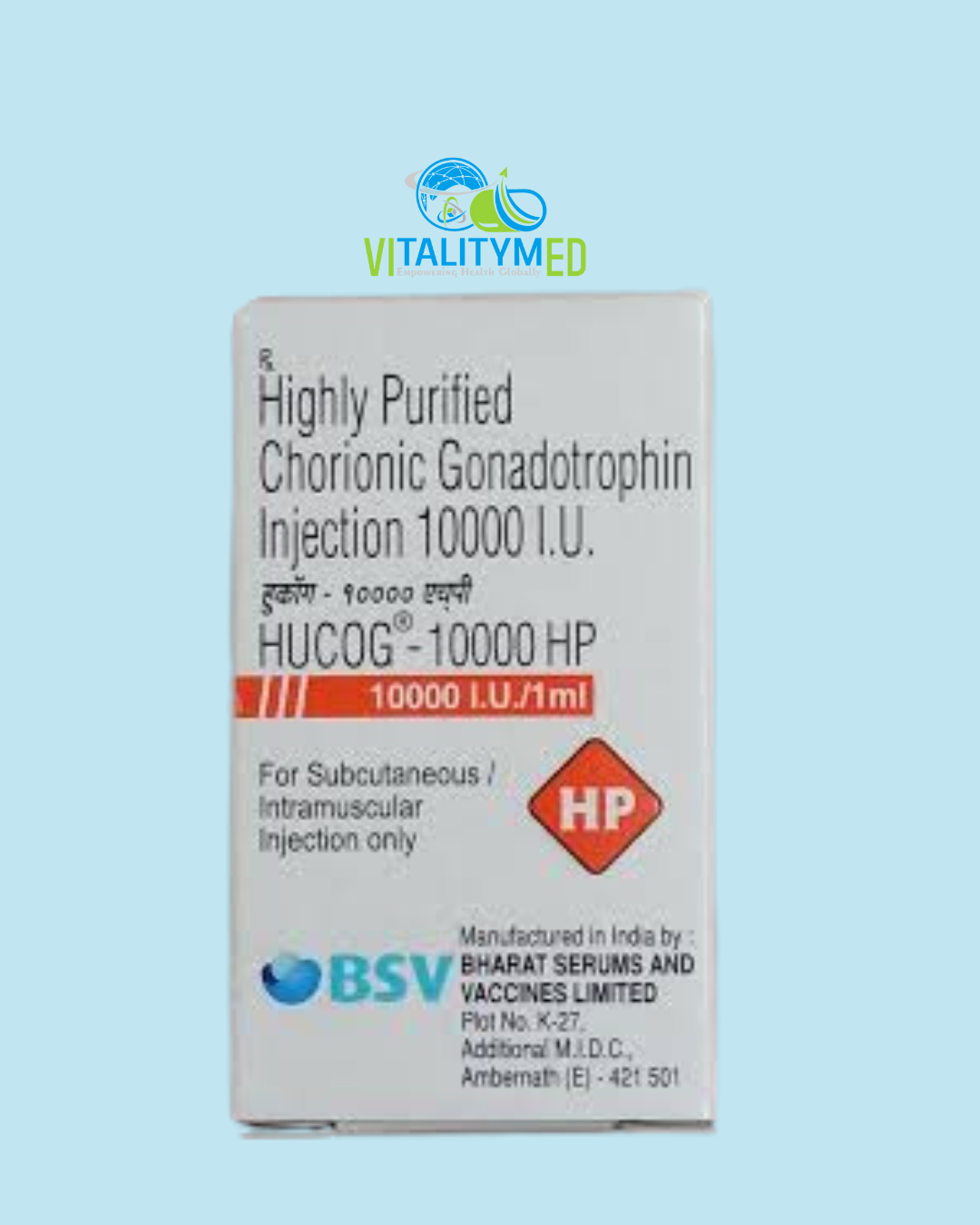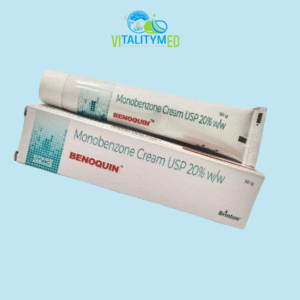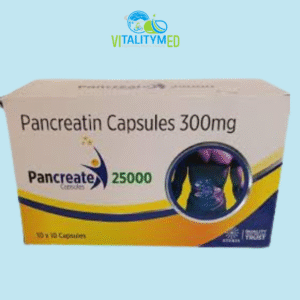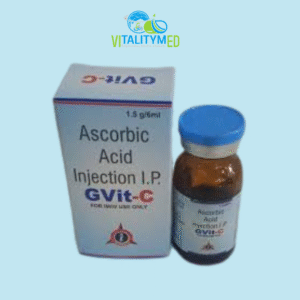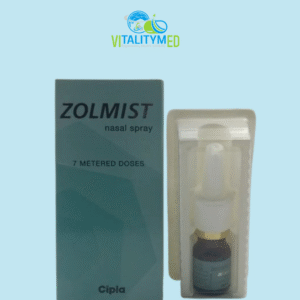HUCOG-10000 HP is an injectable preparation that contains Human Chorionic Gonadotropin, commonly known as HCG. It is a hormone that plays a crucial role in fertility treatment. This medication is often used in both men and women to manage hormonal imbalances, support reproductive function, and assist in ovulation or sperm production. The “10000 HP” indicates a high potency dose, typically used when a strong hormonal response is needed.
Mechanism of Action:
HCG mimics the action of luteinizing hormone (LH), a natural hormone produced by the pituitary gland.
-
In women, it helps trigger the final maturation of ovarian follicles and causes the release of an egg (ovulation), which is essential for conception.
-
In men, HCG stimulates the testes to produce testosterone and increases sperm production by acting on the Leydig cells.
-
It supports the normal development of eggs in the ovaries and promotes hormonal balance, particularly in fertility treatments.
Uses:
HUCOG-10000 HP is commonly used for:-
Inducing ovulation in women undergoing fertility treatment like intrauterine insemination (IUI) or in vitro fertilization (IVF)
-
Supporting luteal phase in assisted reproductive technologies
-
Treating delayed puberty in boys due to hormonal deficiency
-
Managing male infertility, especially when there is low testosterone or reduced sperm count
-
Cryptorchidism (undescended testicles) in young boys, when surgery is not the first option
Adverse Effects:
While HUCOG is usually well tolerated when used under medical supervision, some side effects may occur:-
Pain or swelling at the injection site
-
In women: Ovarian hyperstimulation syndrome (OHSS), which can cause bloating, nausea, abdominal pain, and weight gain if the ovaries over-respond
-
In men: Acne, mood changes, or breast tenderness may result from increased testosterone levels
-
Headache, fatigue, irritability, or water retention can also be experienced in both genders
-
Rarely, allergic reactions or blood clots may occur, so close monitoring is necessary in high-risk patients
-
-

